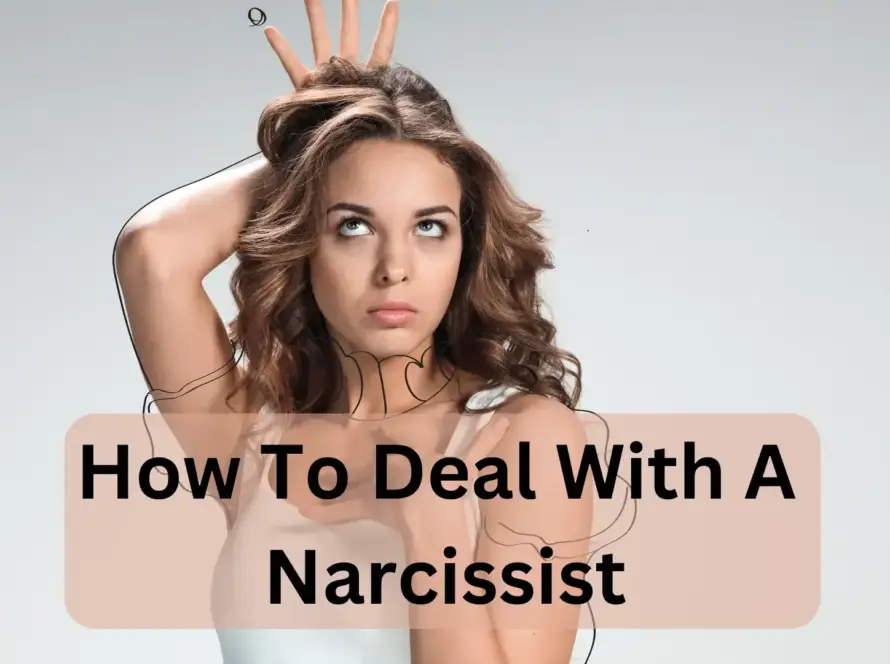
Estranged relationships can feel like emotional ghosting with a side of awkward silences.
It’s messy, weird, and painfully relatable.
But what does estranged really mean?
If you’ve Googled “estranged meaning” or asked, “What does estranged mean?,” you’re in the right place.
Let’s break it down with humor, heart, and a dose of reality.
Whether it’s a family fallout, a fading friendship, or a romantic disconnect, being estranged isn’t just for soap operas.
It’s real life, and it’s complicated.
But don’t worry, we’ll tackle it together, one laugh at a time.
Estranged: It’s Not Just for Soap Operas
Let’s clear this up: estranged isn’t just a dramatic word people throw around in movies or Jane Austen novels.
It means your relationship has taken a sharp turn toward “let’s avoid each other at all costs.”
It’s like that friend who slowly stopped texting back, except now it’s your sibling or your mom.
Fun, right?
Technically, the word estranged comes from the Latin extraneare, meaning “to treat like a stranger.”
So, yeah, it’s got fancy roots, but in practice, it’s more like, “I’d rather eat stale bread alone than have dinner with you.”
Estrangement has existed forever.
Historical drama is packed with it.
Charles Dickens was estranged from his wife after 22 years of marriage, but he stayed tight with their 10 kids.
TEN.
Kids.
Imagine their family reunions.
Or not, because they probably didn’t have any.
Even Shakespeare wrote about estrangement: King Lear, anyone?
And don’t get me started on royal families.
They’ve been estranging each other for centuries.
Queen Elizabeth I?
She was estranged from her half-sister Mary (yep, Bloody Mary) for years.
Why?
Religious differences, murder plots…you know, the usual sibling drama.
But here’s the twist most people miss: estrangement isn’t always loud and dramatic.
It can be quiet, sneaky even.
One day, you’re laughing at inside jokes.
The next, you’re not returning each other’s calls.
It’s like a slow fade-out on the friendship playlist.
In the end, being estranged is like finding yourself in a relationship limbo: somewhere between “close” and “do I still remember their birthday?”
It’s weird, uncomfortable, and oddly fascinating.
But one thing’s for sure: it’s not just for soap operas.
Real life is way messier.
And, let’s be honest, way funnier too.
What Does Estranged Mean in Real Life?
Let’s bring the word estranged down from its dramatic pedestal and into the awkward realities of everyday life.
Estrangement doesn’t always look like some epic movie scene where people scream, “You’re dead to me!” while throwing wine glasses.
In real life, it’s often quieter, weirder, and way more relatable.
Social media estrangement: These days, being estranged can start with something as small as getting unfollowed.
One minute, your cousin is commenting “cute!” on all your selfies, and the next, you realize they’ve blocked you but are still liking your ex’s posts.
Ouch!
Workplace estrangement: Believe it or not, estrangement doesn’t just happen in families.
Ever had a work friend turn into a stranger because you got promoted?
Office politics can get real messy.
One day you’re sharing snacks in the breakroom, and the next, they’re side-eyeing you over a spreadsheet.
Romantic estrangement: This one is a doozy.
Emotional estrangement in relationships happens when you’re together physically but emotionally worlds apart.
It’s like sharing a bed but feeling like roommates. “Pass the salt” becomes the most exciting conversation of the day.
Family estrangement: Ah, the classic.
Maybe you had a blowout fight at Thanksgiving over politics.
Or maybe it’s more subtle, like realizing you have zero in common with that one sibling anymore.
Sometimes it’s just distance, literal or emotional, that creates a rift so big, you’re suddenly strangers who happen to share DNA.
But here’s the kicker: estrangement doesn’t always come from bad blood.
Sometimes, it’s just…drift.
Life happens.
People change.
Relationships that used to fit perfectly suddenly feel two sizes too small.
And let’s not forget the unexpected estrangements.
Like that one friend who disappeared after you said you didn’t love their favorite Netflix series. (Sorry, Rebecca, but Bridgerton just wasn’t my vibe!).
Here’s the thing no one tells you: estrangement is super common.
Research shows it happens in over a quarter of families.
That’s a lot of holiday parties with missing chairs at the table.
But real-life estrangement isn’t always permanent.
It’s often a spectrum.
Maybe you’re not completely cut off, but you’ve downgraded the relationship to “occasional small talk at weddings” status.
It’s awkward, but manageable.
Estrangement in real life is messy, sometimes necessary, and almost always complicated.
It’s not just about slamming doors or dramatic ultimatums, it’s about the quiet shifts, the unresolved tension, and the decisions we make (or don’t) to keep people in our lives.

The Weird Psychology of Being Estranged
Let’s dig into the brain stuff because, trust me, estrangement is a psychological rollercoaster.
Why do we become estranged?
It’s not always one big dramatic fallout (although those do happen).
Often, it’s a subtle series of events, tiny cracks that turn into full-blown canyons.
But what’s really going on beneath the surface?
The Fight-or-Flight Instinct:
Estrangement can be a form of emotional self-defense.
When someone hurts us, whether through betrayal, constant criticism, or just plain neglect, our brains go into survival mode.
Fight?
Too much drama.
Flight?
That’s where estrangement comes in.
Cutting someone off (or being cut off) is like hitting the emotional eject button.
Unspoken Expectations:
Here’s the kicker: most estrangements aren’t about what happened but about what didn’t happen.
Maybe you expected them to show up for you during a tough time, and they didn’t.
Or they expected you to call every week, and you didn’t.
These unmet expectations fester, and suddenly, you’re strangers.
The “Slow Fade” Phenomenon:
Sometimes estrangement isn’t a conscious choice, it’s just life.
People grow, priorities shift, and relationships quietly fizzle out.
Psychologists call this “passive estrangement.”
You didn’t plan to stop talking to your college bestie, but here you are, liking their vacation pics on Instagram from afar.
Cultural and Family Dynamics:
In some families, conflict is dealt with head-on (cue the shouting matches).
In others, estrangement is the default solution.
Why talk it out when you can just stop talking altogether?
Cultural norms play a huge role here.
Some cultures emphasize family loyalty no matter what, while others are more individualistic, making estrangement a bit more common.
The Identity Crisis:
Being estranged can mess with your sense of self.
You might question, “Am I the problem?”
Spoiler: maybe, maybe not.
Relationships are two-way streets, and estrangement often happens when both parties fail to navigate the traffic.
The “Out of Sight, Out of Mind” Effect:
Here’s the weird part: once you’re estranged, your brain kind of…rewires itself.
Studies show that people tend to dehumanize those they’re estranged from.
It’s easier to emotionally detach when you see the other person as “the problem” rather than a whole, flawed human.
It’s survival 101, but it’s also what makes reconciliation so hard.
The Shame Spiral:
Whether you’re the one who initiated the estrangement or the one on the receiving end, guilt and shame can creep in.
“Did I overreact?”
“Was I too harsh?”
These thoughts can snowball, making it even harder to bridge the gap.
The Power Play:
Estrangement isn’t just emotional. It can be about control.
By cutting someone off, you’re taking charge of the situation. It’s a way to say, “I decide who gets access to me.”
But this power play often comes with a side of loneliness.
Here’s a twist: psychologists say that estrangement isn’t always bad.
Sometimes, it’s a healthy boundary.
If someone is toxic or harmful, stepping back might be the best thing you can do for your mental health.
But the psychology of estrangement is never one-size-fits-all.
Some people feel relief… others feel heartbreak.
And many feel both, sometimes at the same time.
At the end of the day, estrangement isn’t just about the person you’re estranged from.
It’s also about you, your boundaries, your needs, and your willingness (or not) to open the door again.
Because in the messy world of relationships, nothing is ever simple.
Or boring.
The Unspoken Upsides of Estrangement
Okay, let’s flip the script: estrangement isn’t always the villain of the story.
Sometimes, it’s a blessing in disguise.
Hear me out: distance can be a good thing.
It gives you room to breathe, grow, and protect your peace.
1. Boundaries, baby!
Estrangement is often a last-ditch effort to set boundaries that should’ve been there all along.
If someone has been overstepping, criticizing, or draining you emotionally, a little distance might be the healthiest option.
It’s like saying, “Hey, I love you, but from over there.”
2. Less drama in your inbox.
No more passive-aggressive texts.
No more long, exhausting phone calls where you hear about their third cousin’s dental issues.
Estrangement can cut down on unnecessary emotional clutter.
3. More energy for healthy relationships.
When you let go of toxic or draining connections, you free up space for the relationships that actually fill your cup.
Think of it as decluttering your emotional closet.
Marie Kondo your social life and focus on the people who spark joy.
4. Self-discovery and growth.
Estrangement forces you to evaluate what you really want in your relationships.
It’s a chance to reflect on your values, priorities, and emotional needs.
In a weird way, being estranged can help you understand yourself better.
5. Freedom from guilt trips.
Let’s be real: some relationships come with strings attached, strings made of guilt and obligation.
Estrangement can be a way to snip those strings and live on your terms.
No more explaining your choices to someone who never really listens.
6. Unexpected perks.
Fewer birthday gifts to buy.
No need to fake enthusiasm for their poorly cooked Thanksgiving turkey.
And hey, no more awkward small talk at family reunions.
It’s not petty.
It’s practical!
But here’s the real secret: estrangement isn’t always forever.
Sometimes, taking that step back can lead to clarity, healing, and even a path toward reconciliation, if both people are willing to try.
And if not?
That’s okay too.
Not every relationship is meant to last, and that’s not something to feel bad about.
Ultimately, the upsides of estrangement come down to one thing: reclaiming your emotional energy.
You get to decide where it goes, and who’s worth it.

Mending the Estranged Fence (If You Want To)
So, you’re estranged, but maybe you miss them.
Or you’re just tired of dodging questions about them at family events.
Whatever the reason, mending an estranged relationship is possible, but spoiler alert: it takes work.
This isn’t a rom-com where one teary apology fixes everything.
Real-life fences are more complicated to mend, but the payoff can be worth it.
1. Start Small (Seriously, No Grand Gestures)
Forget the big dramatic apology letter or surprise knock at their door.
Relationships aren’t Hallmark movies.
Instead, start with something simple.
A text.
An email.
Even a meme. (Yes, memes are modern-day olive branches. Send a funny cat video, it’s low pressure and says, “Hey, I’m thinking of you.”)
2. Drop the Ego (Easier Said Than Done)
Estranged relationships often linger because both sides are waiting for the other to make the first move.
Here’s the hard truth: if you want to fix it, you might have to swallow your pride.
Reach out, even if you feel like you were “in the right.”
Remember, the goal isn’t to win.
It’s to reconnect!
3. Be Clear About Your Intentions
When you reach out, be upfront.
Something like, “I miss you and want to see if we can talk” works wonders.
Avoid vague messages like, “Hey, what’s up?”
They might think you’re selling essential oils.
4. Acknowledge the Elephant in the Room
If there was a specific incident that caused the estrangement, don’t pretend it didn’t happen.
Ignoring it only makes things more awkward.
You don’t have to dive into it right away, but at some point, acknowledge the hurt.
Something like, “I know we haven’t talked since [insert drama here], and I regret how things went down.”
5. Listen More Than You Talk
When the time comes to have a real conversation, focus on listening.
Really listening.
Not the “waiting for your turn to talk” kind of listening.
Let them share their side without interrupting.
Even if you don’t agree, validating their feelings can go a long way.
6. Set Realistic Expectations
Reconciliation doesn’t mean the relationship goes back to the way it was.
In fact, it might look completely different, and that’s okay.
Focus on building something new rather than recreating the past.
7. Be Patient, Healing Takes Time
Don’t expect instant results.
Estrangement often involves years of hurt feelings, misunderstandings, or growing apart.
Rebuilding trust and closeness takes time.
Be prepared for some awkward moments, and don’t push for more than the other person is ready to give.
8. Know When to Let Go (If Needed)
Here’s the hard pill to swallow: not all fences are mendable.
If they’re not receptive or the relationship was genuinely toxic, it’s okay to walk away.
You tried, and that’s enough.
9. Share Neutral Ground
Sometimes, easing back into a relationship is easier in a neutral setting.
A family gathering, a group hangout, or even an online chat can reduce the pressure.
It’s less “Let’s fix everything now” and more “Hey, I’m here.”
10. Sprinkle in Humor (When Appropriate)
If the relationship had a playful dynamic before the fallout, humor can break the ice.
A well-timed joke or shared memory can remind both of you why you clicked in the first place.
Bonus Tip: Rebuild with Boundaries
Mending doesn’t mean erasing all boundaries.
In fact, setting clear boundaries can make the relationship stronger.
Whether it’s agreeing to avoid certain topics or limiting how often you communicate at first, boundaries can keep things from unraveling again.
Reconciliation Is a Two-Way Street
Here’s the deal: both people have to be willing to mend the fence.
If one side isn’t ready, it’s not the end of the world.
You’ve done your part, and that takes courage.
Whether you end up mending the relationship or letting it go, you’ve taken a step toward emotional clarity, and that’s always a win.
Remember, fixing an estranged relationship isn’t about erasing the past.
It’s about learning from it, growing, and deciding if the connection is worth building again.
And if all else fails?
There’s always pizza.
Everyone bonds over pizza.
Conclusion
Estrangement, whether it’s with family, friends, or even your partner, doesn’t have to be the final chapter.
While mending fences takes effort, it can lead to deeper understanding, stronger bonds, and a fresh start.
Sometimes, all it takes is a small step, a message, a shared memory, or even the right tools to kickstart a conversation.
That’s where the Better Topics Card Game for Couples comes in.
Designed to improve communication and bring couples closer, this game makes serious talks feel playful and fun.
With repeatable questions, you can replay it endlessly, discovering new insights about each other every time.
It’s not just a game, it’s a way to strengthen your connection, one question at a time.
So why not give it a try?
Whether you’re looking to mend a relationship or simply bond with your significant other, the Better Topics Card Game is the perfect way to communicate, laugh, and grow together.
Start playing today and see how much closer you can become!










